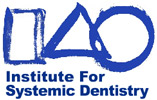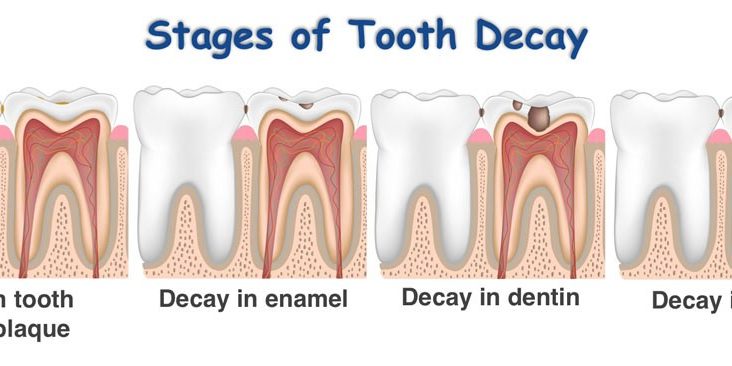The diagnosis of dental disease in children occurs in five stages. The treatment protocol for your child is determined by the assessed stage of the problem(s).
Stage I examines the underlying causes of a child’s dental problems. These may be one or more of five types:
- Dietary. Does the child receive the essential nutrition necessary for proper oral health and tooth formation? Dos the child consume a raw-food or vegetarian diet?
- Biological terrain. The child is assessed for a proper ratio of serum calcium and phosphorus, as well as osmolarity (sodium chloride level).
- Immune system. Has the child’s immune system been weakened? Health issues may include immunosuppression, presence of pathogenic organisms, opportunistic infections (e.g., Lyme disease), and toxic exposure to certain elements, such as lead, mercury, nickel, cadmium, or arsenic.
- Functional issues. Health problems in this part of the diagnosis may include maldigsetion, acidosis, malabsorption, leaky gut, and stress on acupuncture meridians.
- Hormonal issues. Imbalance or improper levels of certain hormones can affect dentin or the blood calcium level. Suspect sources of hormonal problems are the hypothalamus, the parathyroids, and sex hormones.
Stage II looks for oral susceptibility to dental diseases in teeth, gums (starting in the teen years), and jaw (ages 5 to 14). Examination of teeth looks for enamel disturbances, such as erosion, decalcification, fluorosis, developmental disturbances (which affect the color of adult teeth), and natural bleaching. Assessing gum problems involves reviewing oral hygiene habits, including: brushing (checking the toxicity of the toothpaste used); correct flossing and rinsing techniques, which prevent decay and gum disease; and oil pulling, which can mitigate infectious agents in the mouth. When examining the jaw, the dentist looks for myofunctional and speech problems, mouth breathing, and airway blockage and/or sleep apnea, which may indicate chronic inflammation of tonsils or adenoids.
Stage III looks for the initial indicators of dental disease:
- Dentin decay. May be primary (first decay) or secondary (around fillings). Aggressive decay may result from Lyme disease or dysbiosis (microbe imbalance). Decay may also begin due to certain nursing habits in early childhood.
- Gingivitis. The dentist checks for gum infection and inflammation. There may be signs of dysbiosis from organisms foreign to the normal mouth flora or from endogenous (normally found in the mouth) flora that have shifted toward opportunistic infection.
- Misalignment. Teeth may exhibit crowding, rotation, improper spacing, or a bite that is deep, open, or overbite.
In Stage IV, the oral-systemic metastasis stage, dental problems have progressed to a more serious level. The dentist’s examination may find indicators of:
- Pulpal (focal) infections. These involve abscesses (acute or chronic tooth infections that may become systemic) or fistulas (pus-producing infections that drain into the oral cavity).
- Periodontal (focal) infections. The dentist may find evidence of bone loss and pockets in the gum tissue. There may also be pathogenic microorganism (including bacteria, viruses, fungi, and yeast) and endotoxins that can spread to cause systemic problems.
- Skeletal misalignment. This may present as development of a class-II overbite or a class-III underbite. Other associated disturbances include a poor facial profile and facial underdevelopment.
At Stage V, systemic manifestations of dental disease occur. These may be either lymphatic in nature (including tonsillitis and swollen lymph nodes) or obstetric (becoming a causative factor in women of increased risk of pre-term birth or low birth weight). The heart, lungs, and pancreas are especially susceptible to systemic manifestations of dental disease. Functional problems that result from these systemic infections may include cranial underdevelopment, postural, spinal, and neuromuscular health issues, and temporomandibular joint and cranial-sacral problems.
The Center for Systemic Dentistry works to address pediatric dental problems at the earliest stages, remedying the problem and preventing further dental or systemic damage later in your child’s life. Located in Berkeley Heights, New Jersey, we are committed to being the state’s leading dental practice that focuses on holistic, healing-focused dentistry. Dr. Philip Memoli and his staff are ready to repair the damage caused by childhood dental problems and ensure that our pediatric patients are committed to maintaining healthy teeth as they grow. Call us today at (908) 464-9144 or contact us via our online contact form.
Read more about pediatric dentistry and child dental wellness at http://www.holisticdentistrynj.com/our-services/pediatric-dentistry/.








